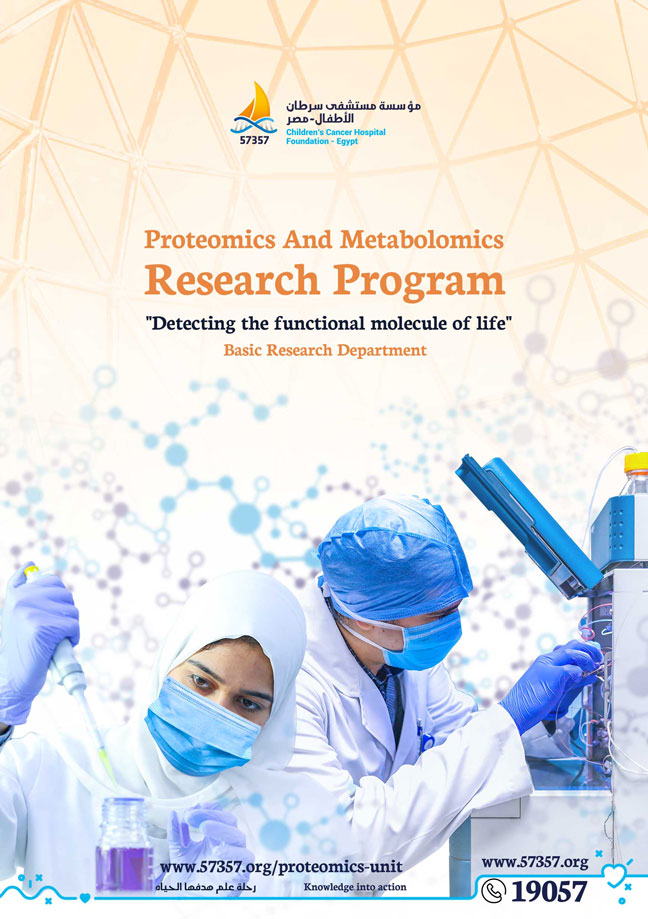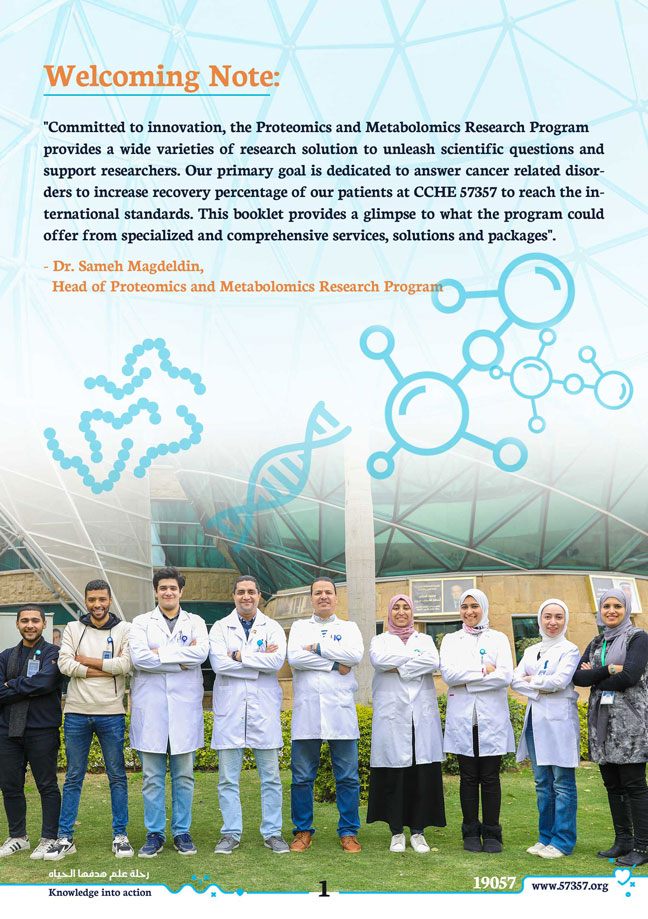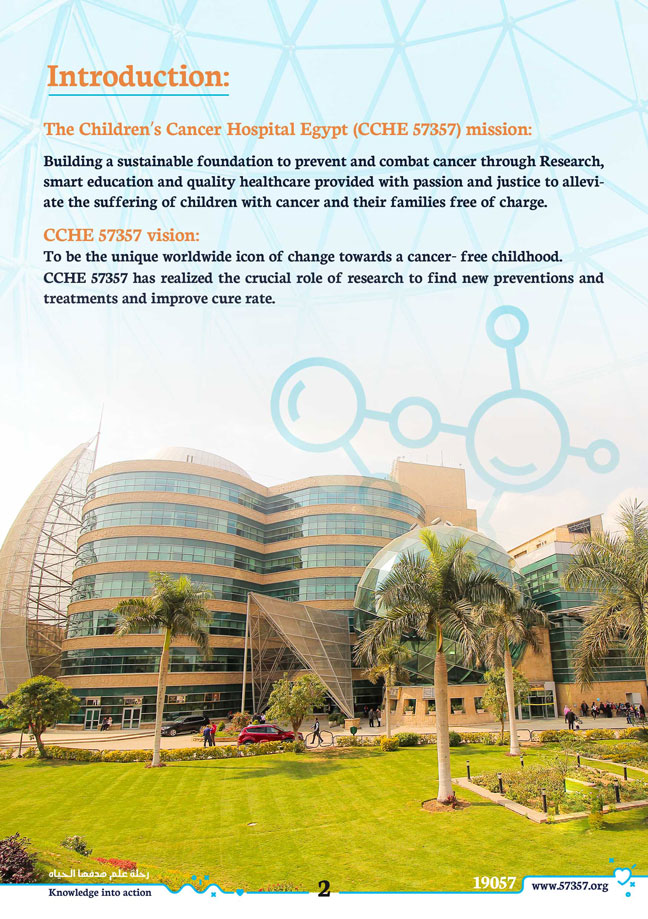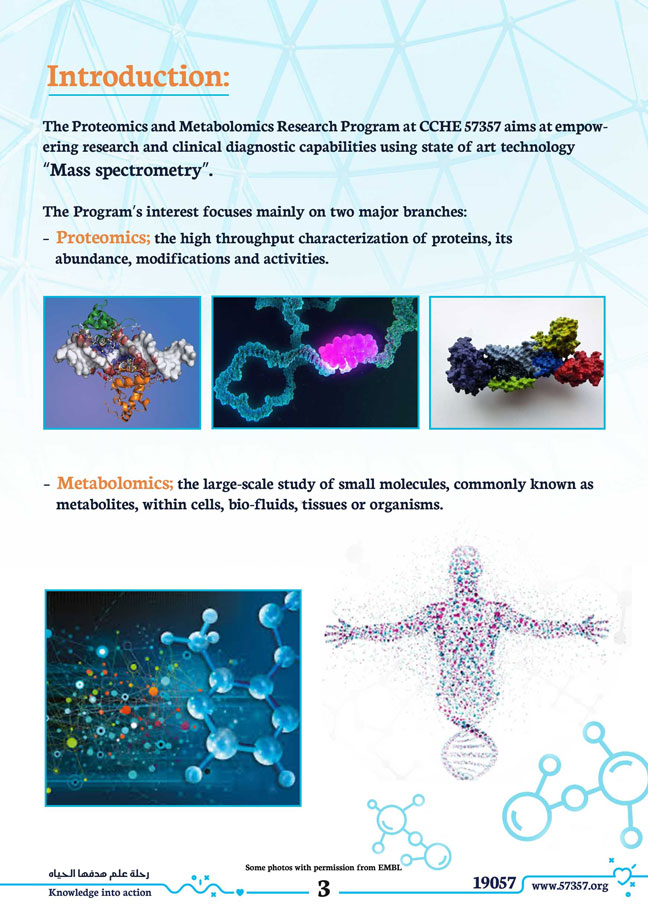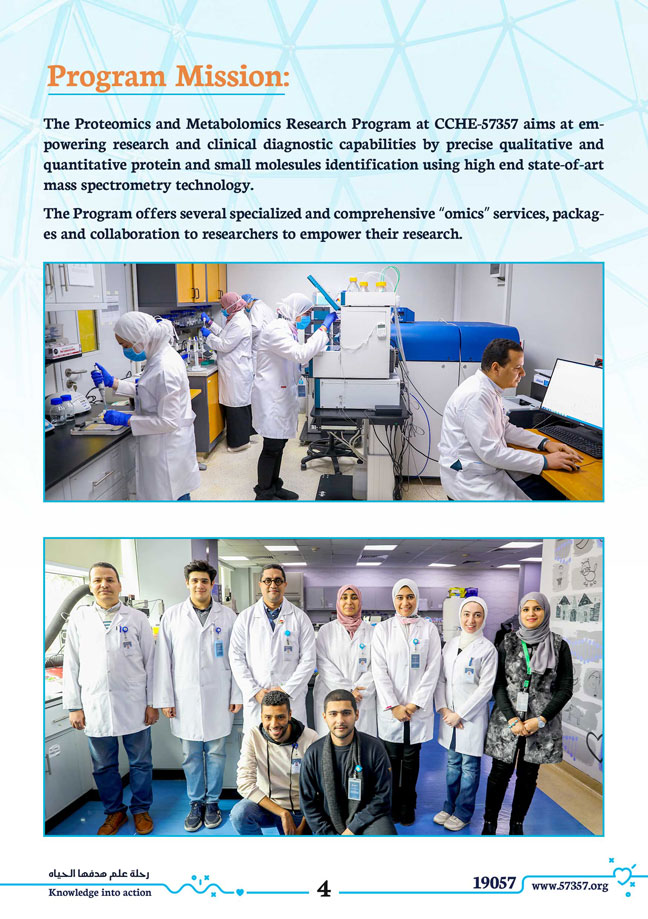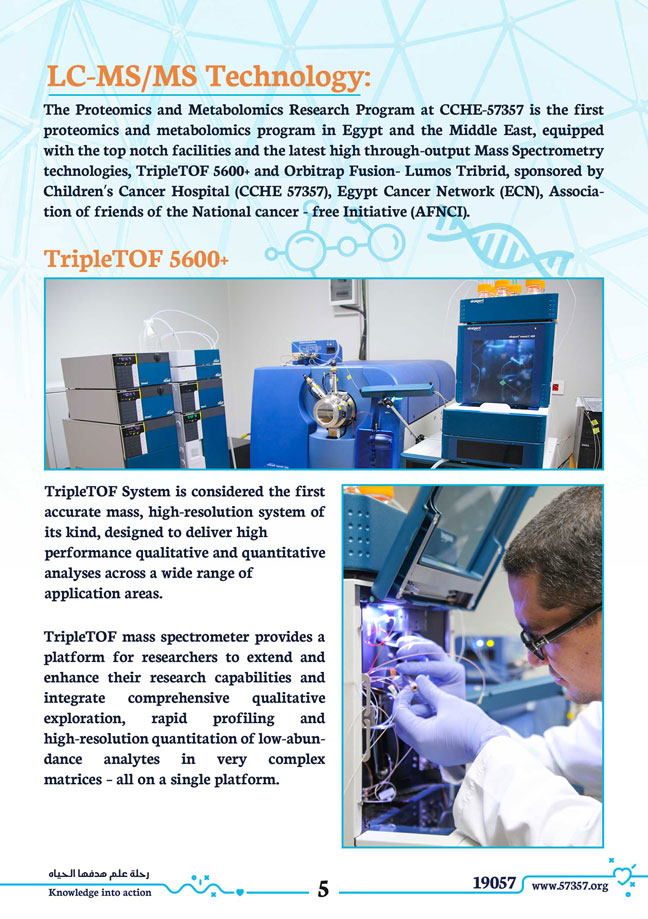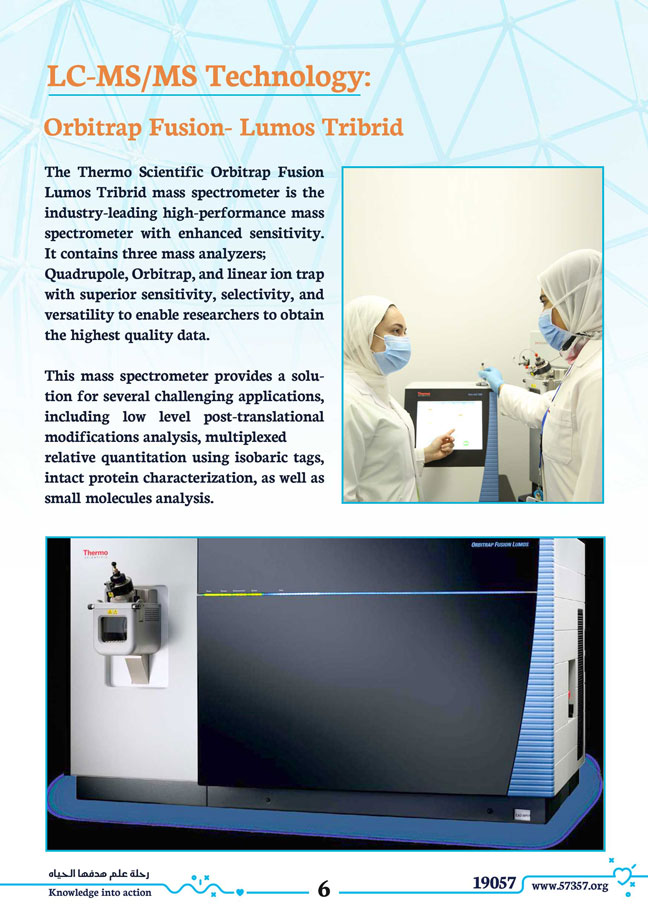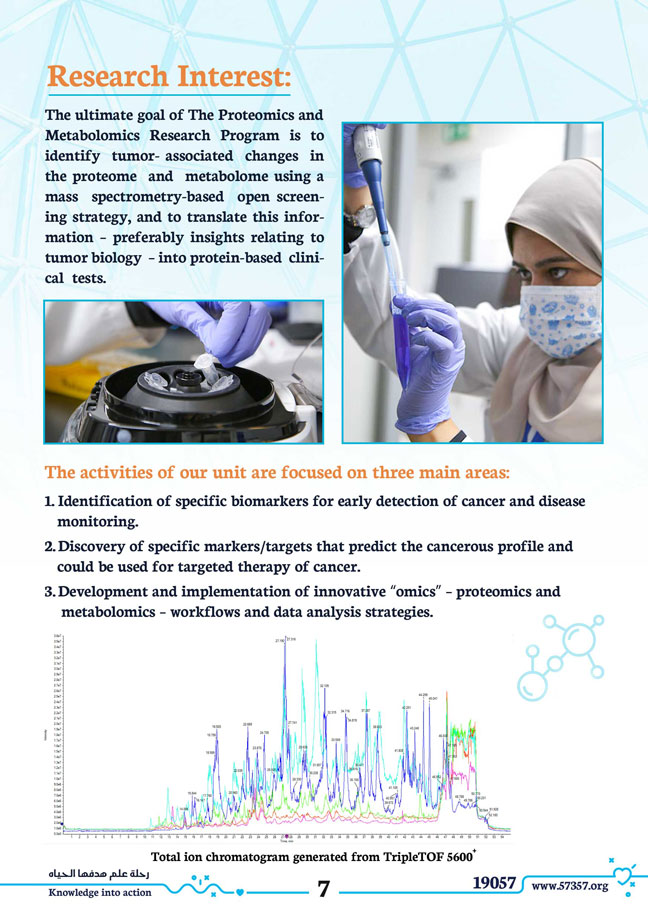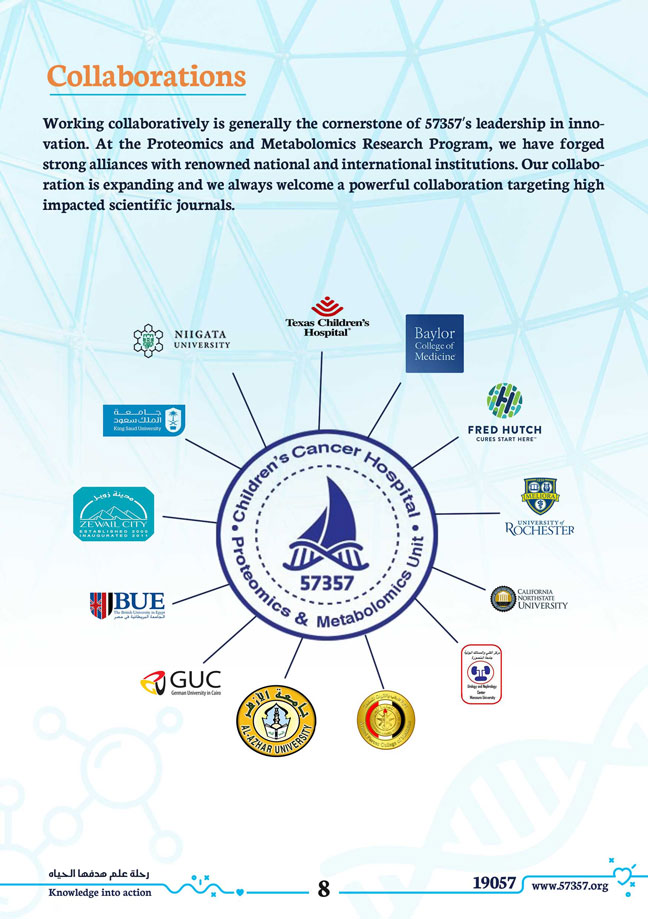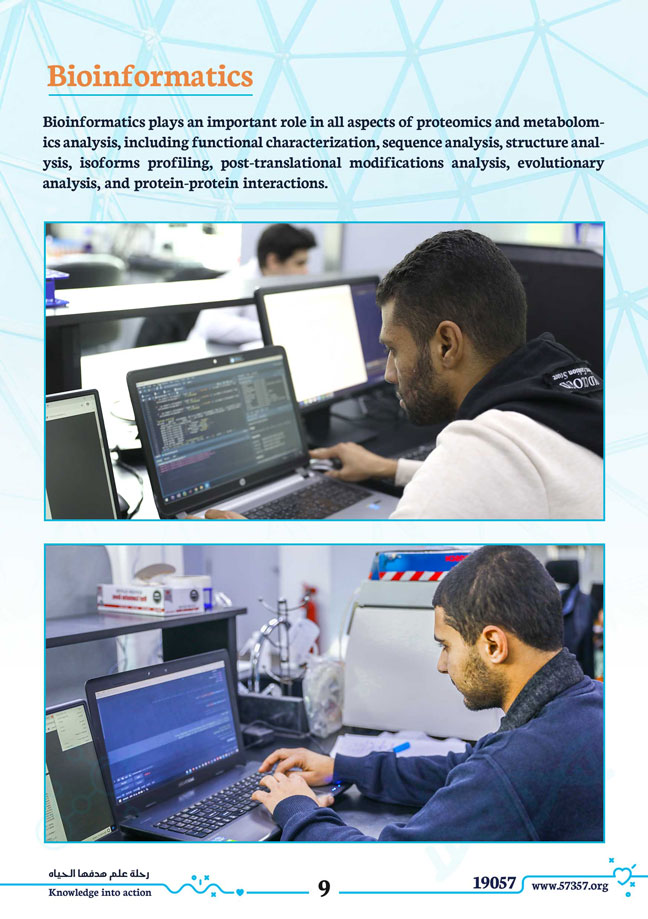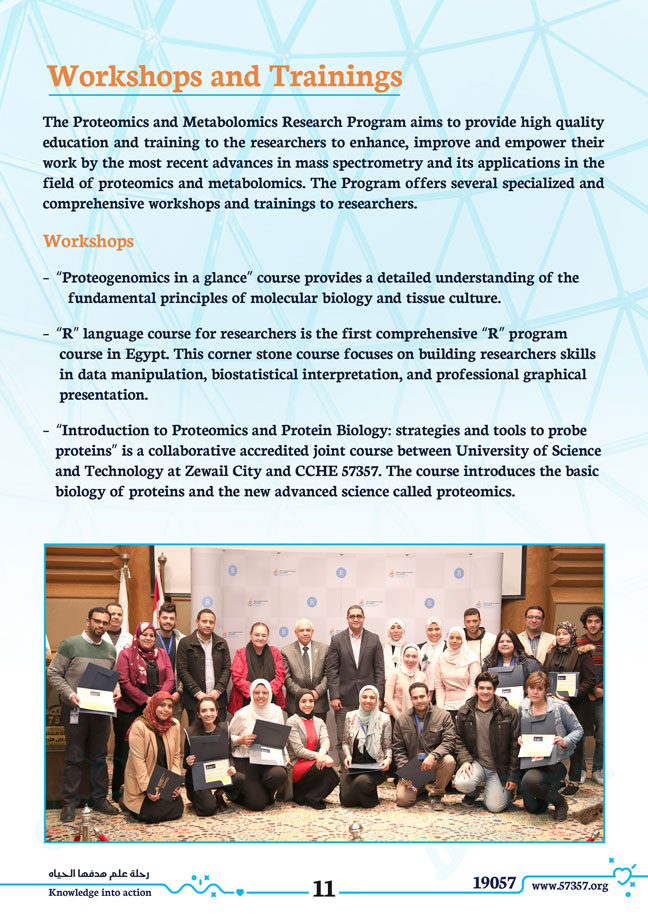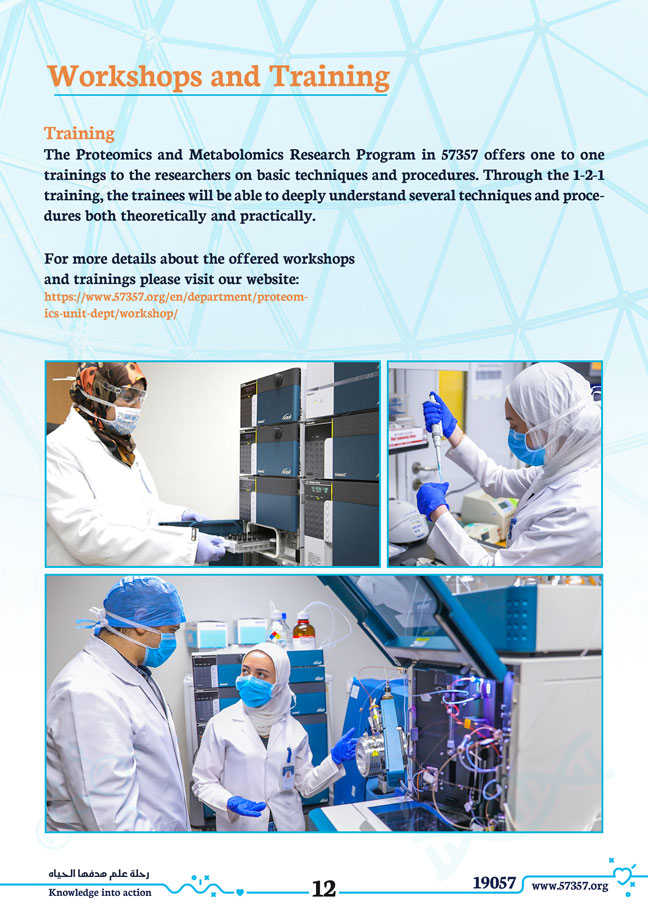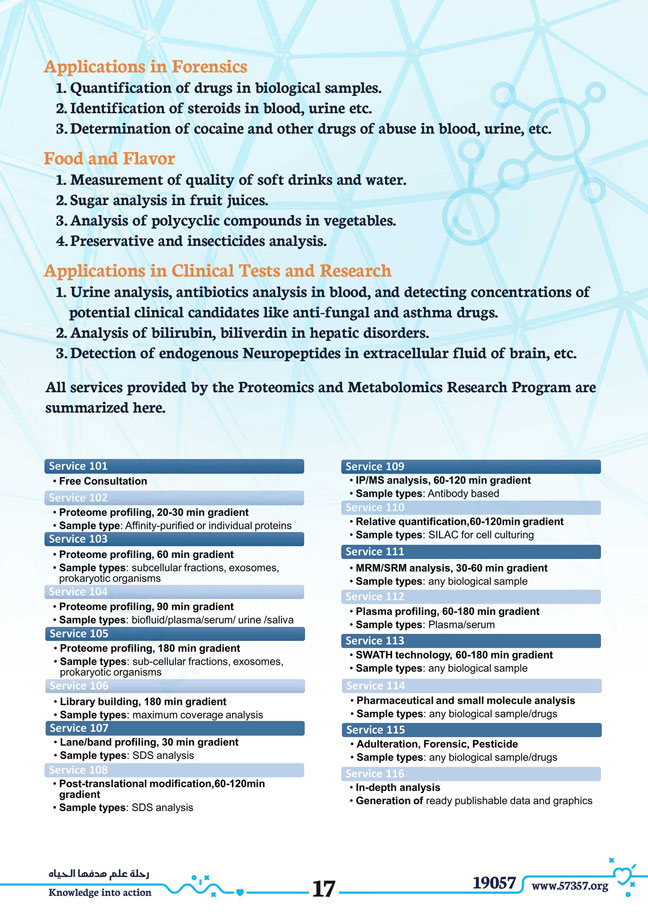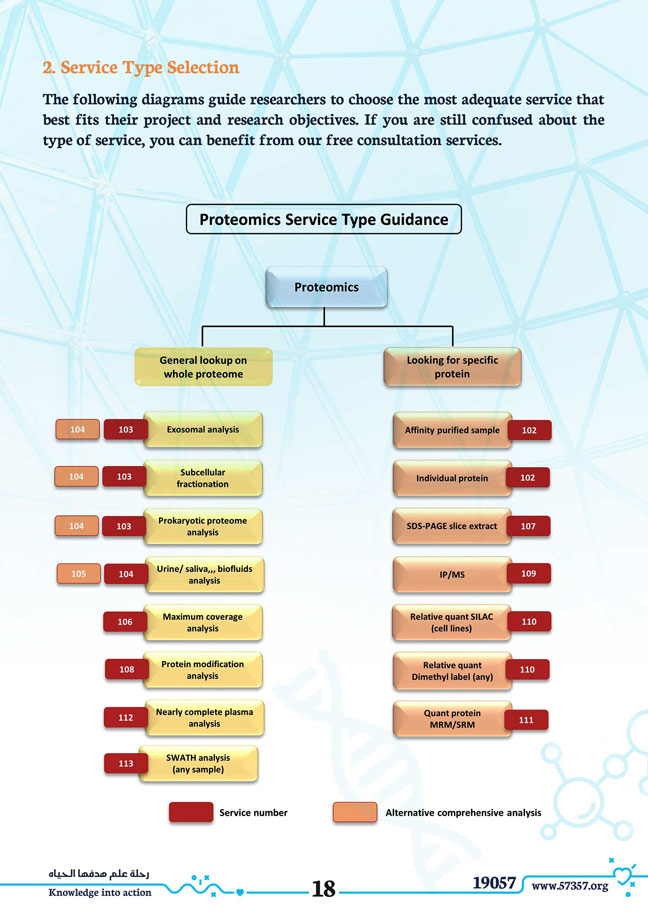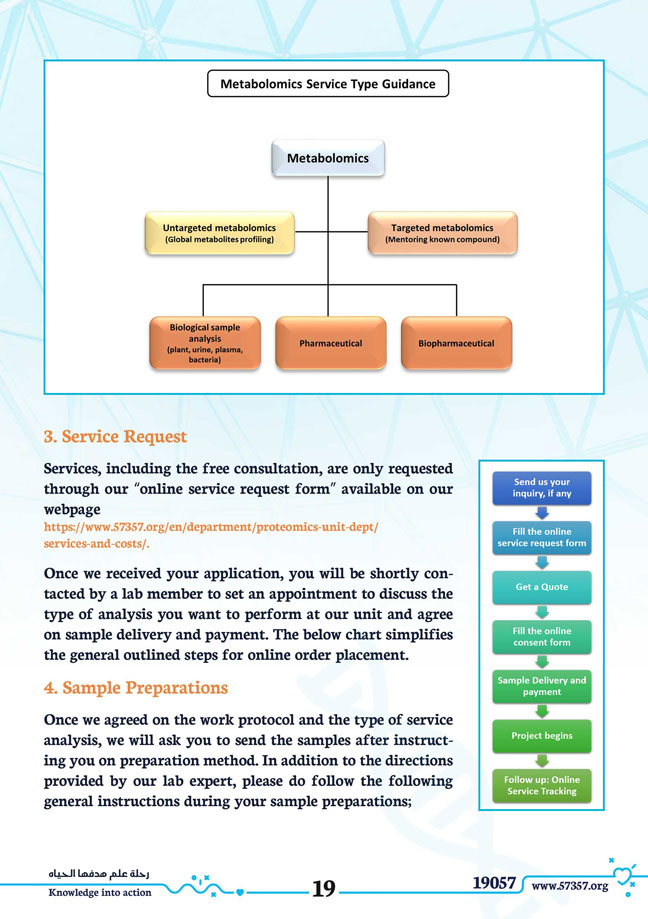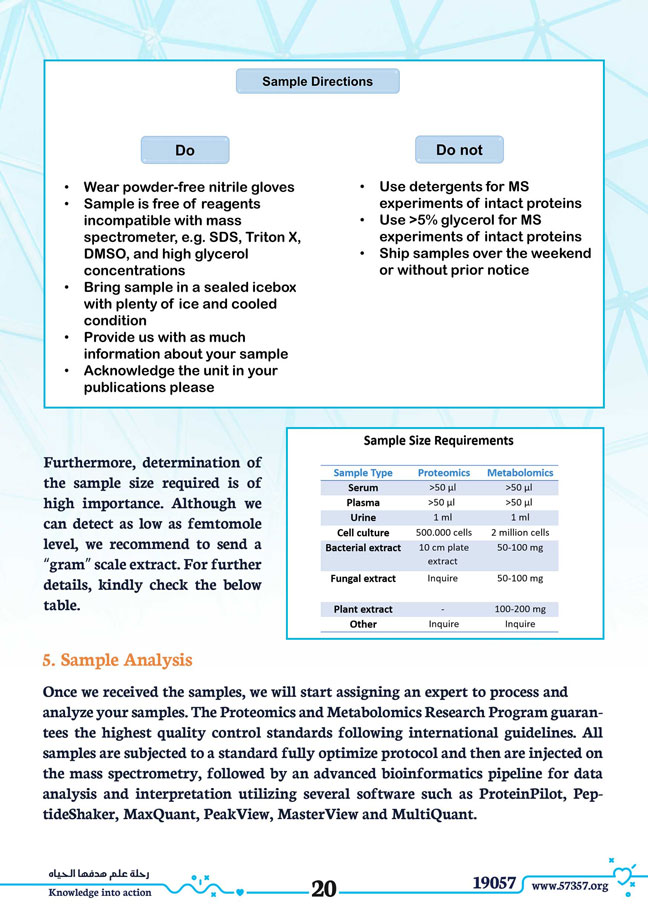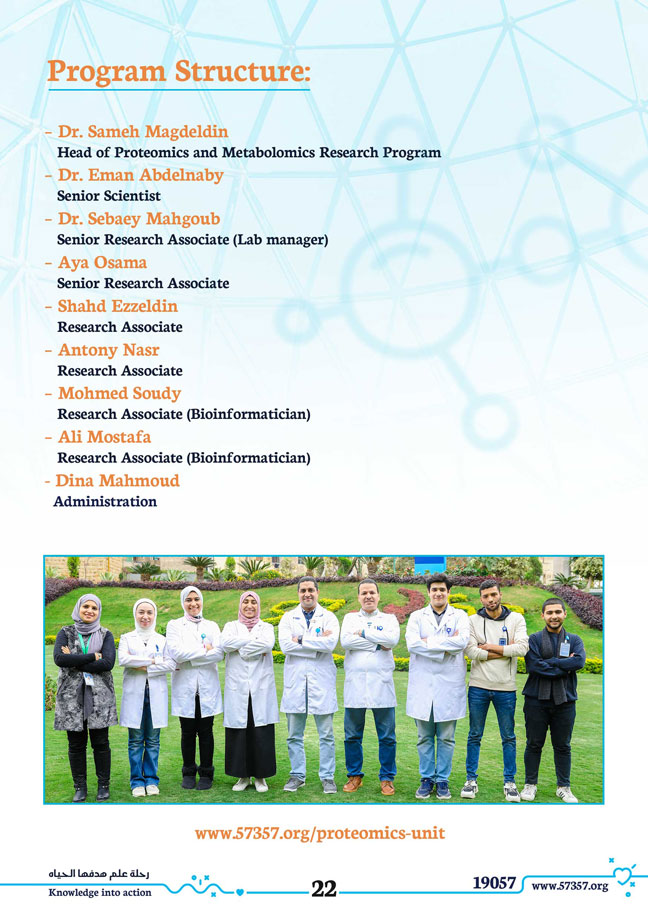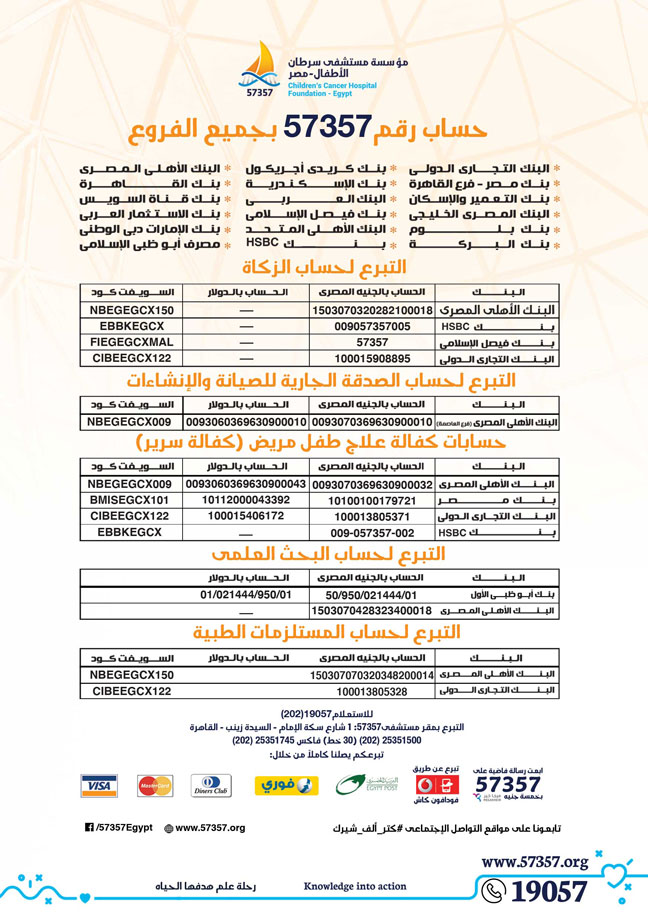The Proteomics and Metabolomics Program
- 19057
- (202) 25351500, Ext. 7226
- [email protected]
Research Program Overview

The research program is accredited with ISO/IEC 17025:2017 by the American Standardization Council (ASC).

Our unit works based on attracting intelligent and interested researchers to lead proteomics and metabolomics. We give them all the tools to build their success story. One of our philosophy is to let our researchers drive every decision in their project under guidance. The primary sacrifice is the time devoted to a single endeavor and not having the opportunity to do other things. This is a choice all laboratory personnel have made.
The proteomics and metabolomics unit at Children Cancer Hospital (CCHE-57357) aims at empowering research and clinical diagnostic capabilities by precise qualitative and quantitative protein and metabolite identification using high end state- of- art Proteomics and Metabolomics technology. The unit offers several specialized and comprehensive services, solutions and packages.
What is Proteomics?
It is the large- scale study of proteomes. A proteome is a set of proteins produced in an organism, system, or biological context. The proteome is not constant; it differs from cell to cell and changes over time. To some degree, the proteome reflects the underlying gene expression. However, protein activity (often assessed by the reaction rate of the processes in which the protein is involved) is also modulated by many factors in addition to the expression level of the relevant gene.
For example: Detection of insulin and vitamin D by mass spectrometry reflects the diabetic condition and malnutrition respectively. Further reads on proteomics and mass spectrometry could be found in the following links:
http://www.childrenshospital.org/research-and-innovation/research/centers/proteomics-center/introduction-to-proteomics/
http://www.asms.org/about-mass-spectrometry/
What is Metabolomics?
Metabolomics is one of the newer “omics” fields and building on the principles of genomics, transcriptomics, and proteomics. Metabolomics is the identification and quantification of small-molecule (<1500Da) and metabolites in biological samples. In doing so, it moves further away from the genome and closer to providing a complete picture of the phenome.
While the metabolomics techniques have been applied to a wide range of biological samples from food, plant and beverages to tissue samples, its biological fluids such as blood plasma, serum, vitreous, tears, saliva, and urine are the most commonly studied. Tissue metabolites such as amino acids, oligonucleotides, carbohydrates, ketones, aldehydes, amines, and many forms of lipids are produced biologically as a result of cellular processes.
Exogenous sources from diet, medications, gut microbe-host metabolism can also influence levels of these small molecules. Further reads on proteomics and mass spectrometry could be found in the following links:
https://www.nature.com/subjects/metabolomics
- Research Program Overview
- Research Interest
- Research Pipelines
- Instruments and Software
- Photo Gallery
- Video Gallery
- Services and Costs
- Grants
- Workshops
- Publications
- Meet Our Team
- Partnership
- Conferences
- Alumni
- Lab Protocols
- Review
- Do's and Don'ts
- FAQ
- Careers
- In-House Bioinformatics Tools
- For Inquiries






